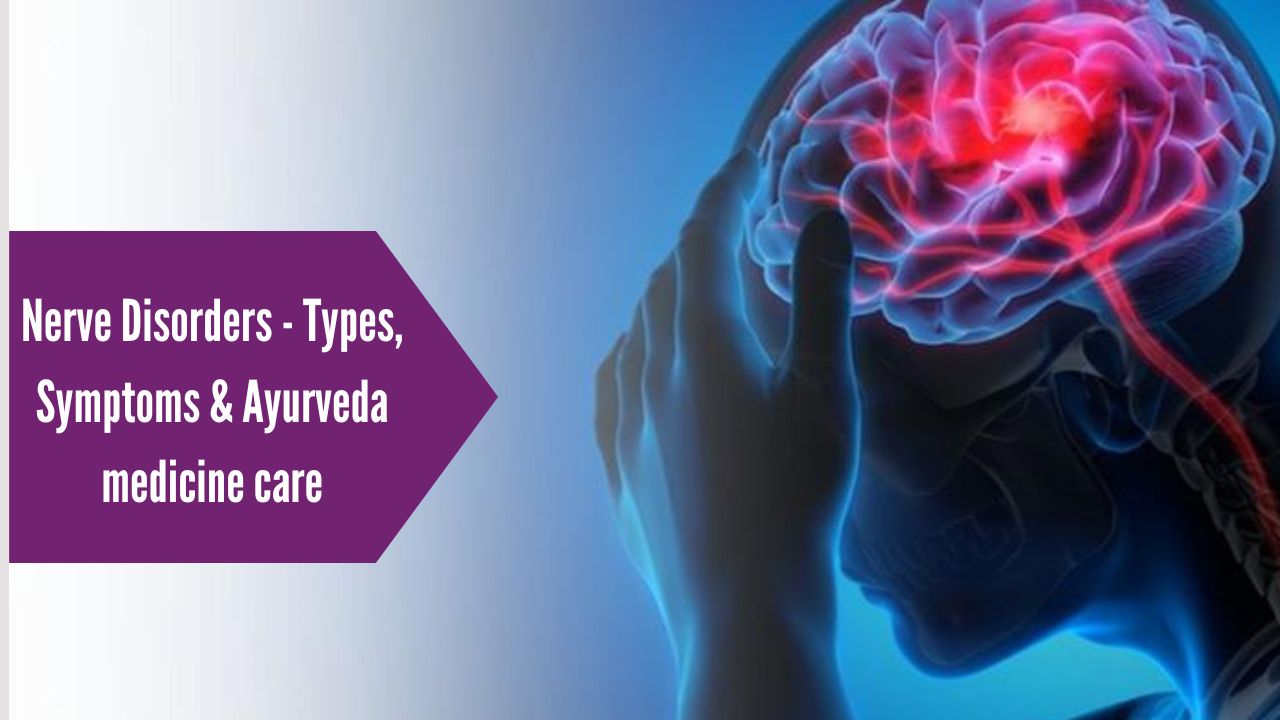Nerve disorders, also known as neurological disorders or neuropathies, are conditions that affect the normal functioning of the nervous system. These disorders can arise from various causes, including genetic factors, infections, autoimmune responses, injuries, toxins, and degenerative processes. Nerve disorders can have a wide range of symptoms and can affect different parts of the nervous system, including the central nervous system (CNS) and the peripheral nervous system (PNS).
The nervous system is divided into two main parts:
the central nervous system (CNS) and the peripheral nervous system (PNS).
Central Nervous System (CNS): The CNS consists of the brain and spinal cord. It is responsible for processing and integrating sensory information, initiating motor responses, and coordinating higher functions such as thinking, memory, and emotion. The brain plays a central role in interpreting sensory input, making decisions, and sending commands to the rest of the body. The spinal cord acts as a relay between the brain and the peripheral nerves, and it also controls certain reflex actions.
Peripheral Nervous System (PNS): The PNS includes all the nerves outside the CNS. It can be further divided into the somatic nervous system and the autonomic nervous system.
Somatic Nervous System: This part of the PNS is responsible for voluntary movements and sensory perception. It transmits signals between the CNS and the body's muscles and sensory receptors, allowing conscious control over actions like walking, talking, and touching.
Autonomic Nervous System (ANS): The ANS controls involuntary functions of the body, such as heartbeat, digestion, breathing, and glandular activity. It is further divided into the sympathetic and parasympathetic divisions, which work in opposition to regulate various physiological processes and maintain homeostasis.
Neurons are the fundamental cells of the nervous system and are responsible for transmitting electrical signals, or nerve impulses, across synapses (junctions) to communicate with other neurons, muscles, or glands. Supporting cells called glial cells provide structural support, insulation, and nourishment to neurons.
The nervous system plays a critical role in maintaining the body's internal environment, responding to changes in the external environment, and coordinating various physiological processes necessary for survival and adaptation.
Nerve Disorders Symptoms
Symptoms of nerve disorders can vary widely depending on the specific disorder, its underlying cause, and the area of the nervous system that is affected. Here are some common symptoms associated with various nerve disorders:
-
Peripheral Neuropathy:
- Numbness or tingling in the extremities (hands, feet, fingers, toes)
- Burning or shooting pain
- Muscle weakness or atrophy
- Loss of coordination and balance
- Sensitivity to touch or temperature changes
- Loss of reflexes
-
Stroke:
- Sudden numbness or weakness in the face, arm, or leg (usually on one side of the body)
- Sudden confusion, trouble speaking, or difficulty understanding speech
- Sudden trouble seeing in one or both eyes
- Sudden severe headache with no known cause
- Trouble walking, dizziness, loss of balance or coordination
-
Multiple Sclerosis (MS):
- Fatigue
- Numbness or weakness in limbs
- Vision problems (blurred or double vision)
- Coordination and balance problems
- Muscle spasms and stiffness
- Cognitive difficulties (memory problems, trouble concentrating)
-
Parkinson's Disease:
- Tremors, usually starting in the hands or fingers
- Bradykinesia (slowness of movement)
- Muscle stiffness and rigidity
- Postural instability and balance problems
- Changes in speech and writing (slurred speech, smaller handwriting)
-
Alzheimer's Disease:
- Memory loss that disrupts daily life
- Difficulty planing and solving problems
- Challenges in completing familiar tasks
- Confusion with time or place
- Trouble understanding visual images and spatial relationships
- Changes in mood and personality
-
Epilepsy:
- Recurrent seizures (varying types, such as generalized tonic-clonic seizures, absence seizures, etc.)
- Loss of consciousness or during a seizure
- Uncontrollable movements or behaviors during a seizure
-
Guillain-Barré Syndrome:
- Muscle weakness, often starting in the legs and progressing upwards
- Tingling or numbness
- Difficulty walking or moving limbs
- Reflex loss or changes
- Severe pain
- Breathing difficulties
-
Myasthenia Gravis:
- Muscle weakness, which can worsen with activity and improve with rest
- Drooping eyelids (ptosis)
- Double vision (diplopia)
- Difficulty swallowing (dysphagia)
- Weakness in facial muscles.
Ayurveda medicine care :
Ayurveda is a traditional system of medicine that originated in India thousands of years ago. It focuses on achieving and maintaining health through a holistic approach that encompasses physical, mental, and spiritual well-being. Ayurvedic medicine is based on the belief that each individual is unique and has a distinct constitution (prakriti), which influences their physical and mental..
characteristicsBelow are some Ayurvedic medicines ,,,,,,,
They are made of completely natural ingredients and have no side effects -
Nerve Tone For Neurological Disease & Improving mental functions is an Ayurvedic medicine that is primarily used for the of nervous disorders such as anxiety, stress, depression, and insomnia. The tonic is believed to have a calming effect on the nerves and can help to reduce symptoms associated with these conditions.














